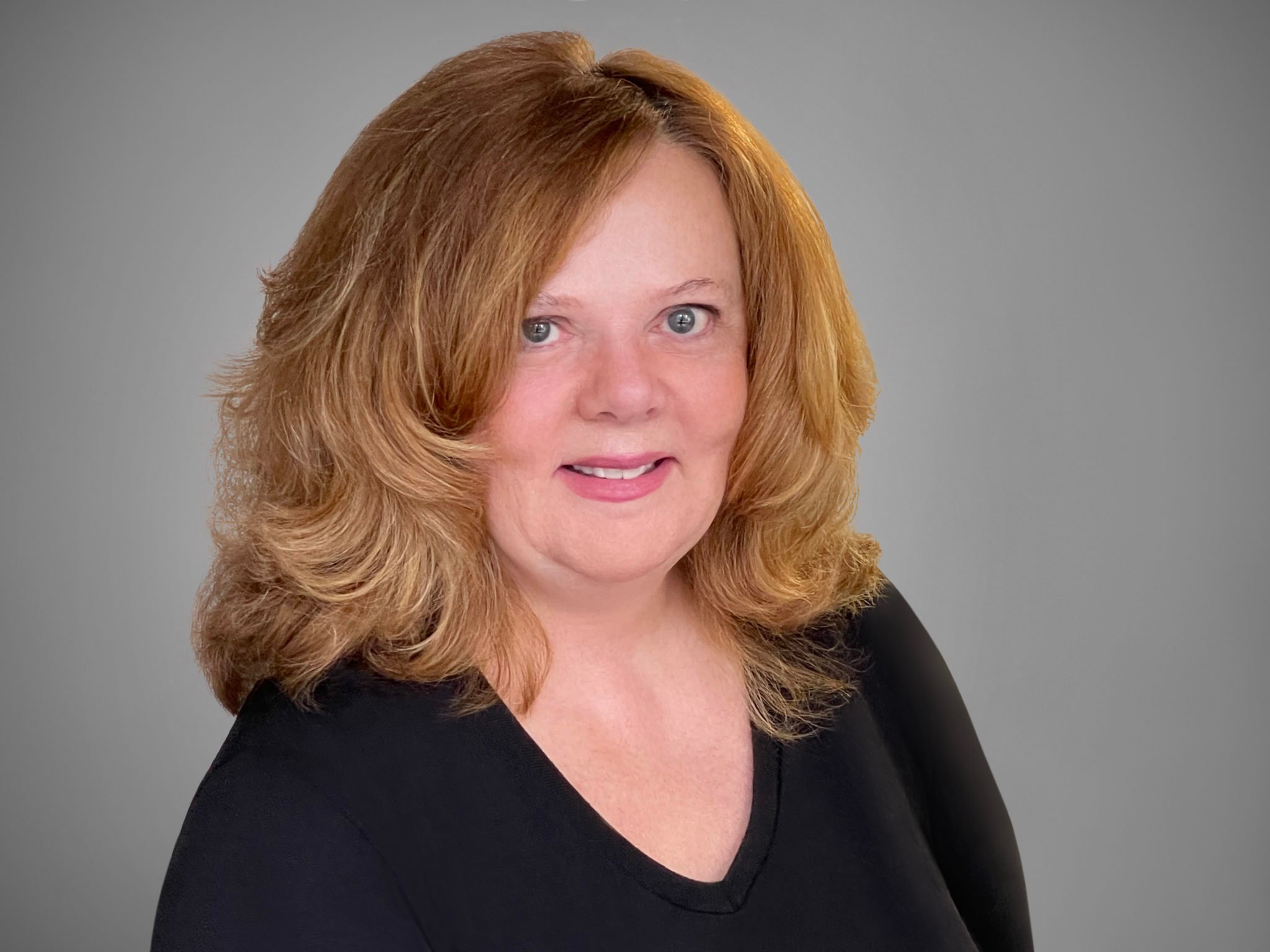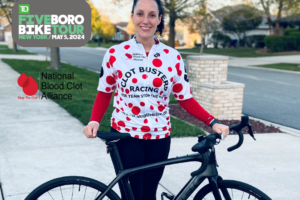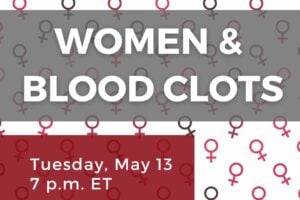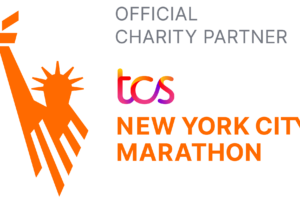On June 8, 2018 — five years ago today — Leslie Lake’s mind was on a speech she was set to deliver that night as Co-Founder and Managing Director of Invus Financial Advisors. Her topic was encouraging women in the hedge fund industry to lean in and take more risks.
But instead, she was hospitalized with a bilateral pulmonary embolism, an experience that changed her life in an instant.
Despite living in New York City and having access to some of the best medical care in the country, it took hours for her to receive a diagnosis. Terrified, she was discharged from the hospital without any information about what had just happened to her.
This lack of awareness and education around blood clots sparked Leslie’s advocacy and put her on a path to becoming volunteer president of the National Blood Clot Alliance.
In recognition of her fifth clotiversary, we sat down with Leslie to talk about how she came to become volunteer president of NBCA and her vision for the future.
How would you describe your life prior to your blood clot?
Professionally and personally, really good. I was philanthropically aware and involved, but never by something that had touched me and my mortality so personally.
What were your initial blood clot symptoms?
Two days prior, I was walking my dogs and I experienced a little bit of shortness of breath. It was severe enough to make me stop and think, ‘Hmm, I need to get back to the gym’ but it wasn’t bad enough for me to think something was really wrong. In hindsight, I think the clots were already in my lungs.
What happened that made you realize you needed emergency care?
I was coming back from the dry cleaners to my apartment and that’s when I experienced my event. The shortness of breath was so bad that I had to hold on to buildings to get back…I called my doctor’s office, she was part of a larger group but she had just retired, so I asked if someone else could see me. They said they didn’t have anything available for three weeks, but if I thought it was really bad, I should go to the emergency room.
It took hours for you to be properly diagnosed. Could you describe that?
I spent about nine hours there. I had heavy menstrual bleeding as I was perimenopausal, and they were really focused on that. I had three different gynecological exams by two different physicians. I then had a vaginal ultrasound by a technician, who said I had fibroids and that became the consensus, that fibroids were causing the shortness of breath. They were going to let me go home, but thankfully, the attending emergency room doctor decided to do a scan of my lungs where the blood clots were found. It was at that point I was rushed to the ICU.
What was your experience like in the hospital?
I was in the ICU for two days. There was little communication about what was happening and how it was being fixed. I was trying to get to my phone so I could Google ‘blood clots.’ The pulmonologist and the attending physician came to see me. He asked if I had flown a long distance recently or was on hormonal birth control, which I had not and was not. He said I would be on a blood thinner and I shouldn’t ride a bike in New York City. I didn’t understand why he would say that. It was because blood thinners increase the risk of bleeding, but that was never explained to me.
What happened when you were discharged?
I was really afraid to leave the hospital. I went home and started reading about blood clots because I had been given no information whatsoever. My period was really heavy from the blood thinner, and they had told me to call with any questions. I called a few times, but never got a call back. I went from being on top of the world personally and professionally to terrified I would die in the span of two days.
How did you find the National Blood Clot Alliance?
I first found NBCA’s peer-to-peer support group, which was so helpful, and I sent an email looking for more information. NBCA was great about sending me information about blood clots, what I needed to do, and the questions to ask my doctor. It was the first time I felt like I was starting to get control of my life back.
What made you want to get more involved with NBCA?
The really big catalyst for me – once it shifted away from me, Leslie Lake, being sick to me, Leslie Lake, being frankly, angry – angry that this happens so often, angry that people are dying from this and don’t have to, I felt the messaging needed to change and people needed to be more aware of this public health crisis and that there should be an urgency to our messaging. No more “here’s the facts” to “here’s the facts and I expect you to do something about it.”
As an unprovoked blood clot survivor, I was initially given the wrong protocol. I was fortunate to use my contacts to transition over to a different doctor but most people don’t have that access. I wanted to level the playing field for people who didn’t have the same access to care that I did.
You joined the board in 2018, became Board Chair in 2019, and volunteer president of the organization in 2021 while also running your business. How do you manage it all?
I’m surrounded by really great people and if you have great people, you can do great things. I have a great group of people at Invus and NBCA and an amazing group of people on the board. We have amazing clinicians. It takes a village and everyone is an important part of that community. My job is to be the No. 1 cheerleader for NBCA and reach as many people as possible.
Why did you decide to take on this role?
Two things: One, I never wanted anyone to experience what I experienced. Two, which is actually the most important thing, our mission saves lives. We know this is highly preventable. People should not be dying from this. This was an opportunity where I felt I could use my contacts and skills to help promote the mission of NBCA. The question to ask is, ‘Why don’t people want to do this?’ If you’re passionate about what you do, it’s never work. I don’t use the word ‘job,’ I use the word ‘privilege.’ It’s a privilege to help other people. I do not take for granted that I survived when so many do not. I want to pay that forward.
What is the Board’s vision for NBCA?
Our vision is to continue to raise awareness about blood clots, but there is such a different level of urgency to it than even when I joined the board. Knowing that so much of this is preventable and we can help to prevent people dying from this motivates all of us. You can expect the entire NBCA team, not just me, to really raise our game and reach more people, reach the folks in DC and at the state level, work with other groups to not just reduce the incidence level, but prevent it. We are at a major inflection point in VTE and I truly believe that the urgency so many of us have will eventually Stop the Clot.®






